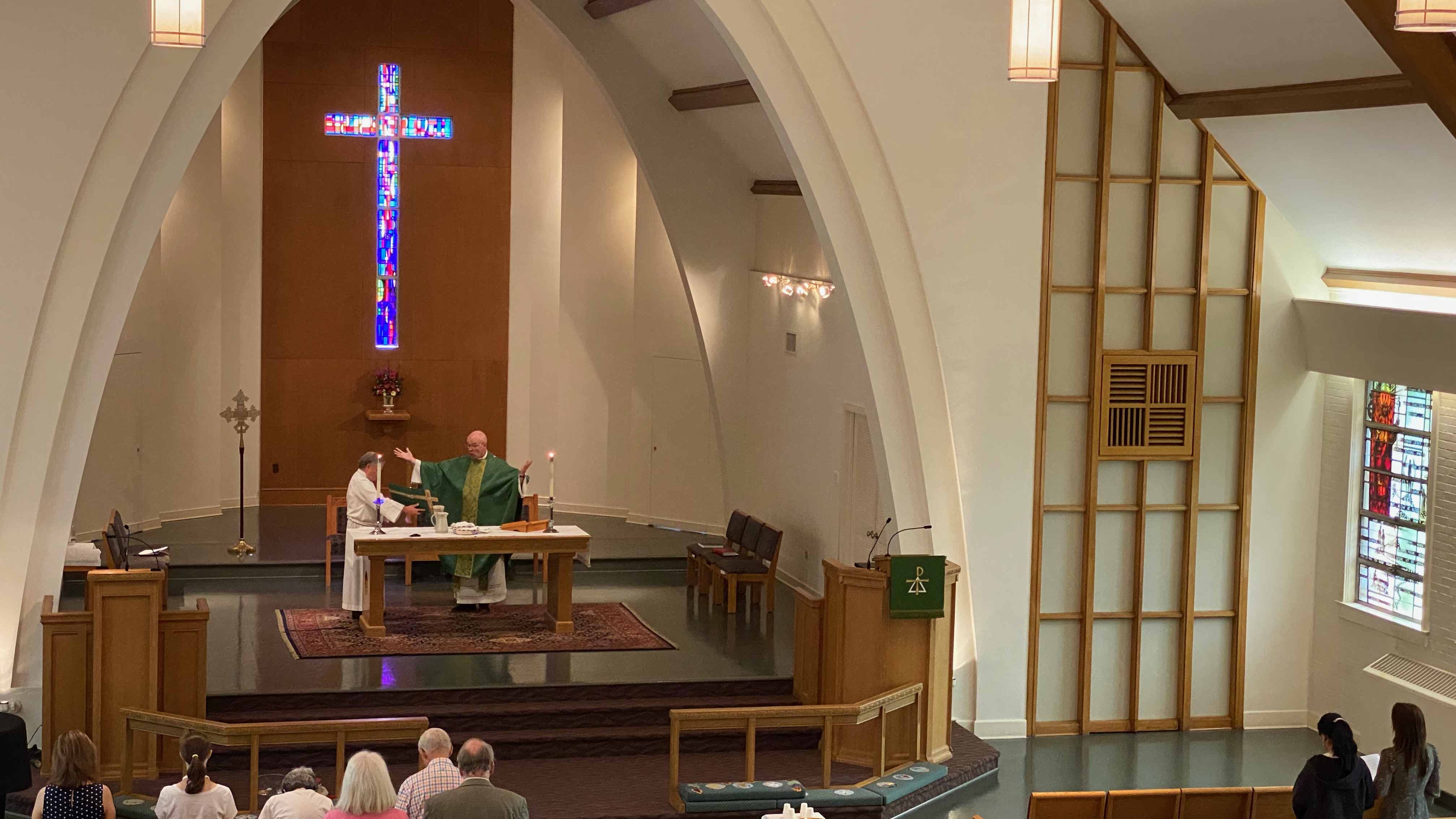Week of the Twenty-third Sunday after Pentecost
Dear Friends in Christ:
Christians have been remembering the saints since the very early centuries of the church’s history. The apostle Paul and others used the term ‘saints’ rather expansively as a reference to all believers in Christ. As the centuries of Christian history accumulated, methods for identifying saints became more formalized through the processes of canonization. In the Roman Catholic tradition, over 10,000 are officially recognized and named as saints of the church. Most saints are remembered on the day of their death, often the day of their martyrdom. Eastern Orthodox churches, along with protestant churches, also have their own listings of and calendars for the many saints.
Lutherans do not hold to an official process of canonization for one to be commemorated as a saint, or as saintly. In our Lutheran calendar of commemorations, over 150 of the faithful are remembered on particular days. Some Sunday morning, or if you have a copy of Evangelical Lutheran Worship at home, take a look at the listing of those whom we commemorate, beginning on page fifteen of the pew edition. You can learn a lot more in More Days for Praise: Festivals and Commemorations in Evangelical Lutheran Worship, a volume crafted by our own Gail Ramshaw, which offers brief hagiographical narratives about those whom we commemorate, along with suggestions for devotional engagement on the days of commemoration – a great resource for daily prayer and for those charged with leading devotions for various occasions in our life together.
I include the commemoration of the saints in my usual daily devotions. Jesus and those saints named in the scriptures can seem remote. But many whom we commemorate in our Lutheran calendar lived and did their work in closer proximity to our time and place. This proximity offers a kind of accessibility to recognize that perhaps our circumstances are not so very different from the situations in life of those whom we remember. While there is an ordinary quality to many whom we commemorate, it is often the case that the over 150 on our calendar are quite noteworthy in their accomplishments. Many had extraordinary energy to accomplish in the Spirit extraordinary things or to offer profound and courageous witness in the life of the church and for the sake of the world. So, despite their accessibility, commemorating the named saints can also be a bit intimidating. Why haven’t I or we accomplished such noteworthy things in our journey of faith and Christian witness? This dynamic of judging ourselves by the standard of the great accomplishments of the named saintly ones is exacerbated perhaps in our culture which highly prizes the achievement of individuals. This can be discouraging at times, even as we give thanks for the great witnesses and leaders we name.
Which brings us to All Saints Day, the day on which I am writing this message, November 1. Today – and this coming weekend when we’ll observe All Saints Sunday on the 24th Sunday after Pentecost – is the day to remember all the saintly ones who are not officially canonized or named in calendars of commemoration. Remembering all the saints has been part of Christian practice for centuries, and the day for celebrating all the saints on November 1 has been in place in the Western church since about the ninth century. All Saints is a kind of catch all, especially for the unnamed. In fact, the tune for a favorite hymn on All Saints, “For All the Saints,” is named sine nomine, that is, ‘without name’ in Latin. In common practice among Lutherans, All Saints Day is fused with what is known in some churchly traditions as All Souls Day or the Commemoration of the Faithful Departed on November 2. In any case, the constellation of days around All Saints (Halloween, by the way, derives from All Hallows Eve on October 31), is the occasion to celebrate, as it were, a people’s history of the church, Christian history viewed from the perspectives of common, ordinary, unsung believers.
While there are thousands of named saints in various Christian traditions who have their own particular days of commemoration, there have been literally billions of unsung-hero saintly ones throughout the two thousand plus years of Christian history. We, my friends, are named among those billions – we along with those whom we will specifically name and remember at the conclusion of our prayers of intercession this coming Sunday. This countless, unnamed throng, this host arrayed in baptismal white, is arguably the backbone, the foundational building block of faithful Christian assembly. While it’s important to remember the named leaders on their particular days of commemoration, it’s also essential to remember and celebrate the followers, the helping hands and the other less noteworthy body parts, members of the body of Christ, the church. These, too, are the saints. We have known them intimately among our family, friends, and other members of the church. And we have likely come to faith in the power of the Spirit working in the witness of those saints closer to our own homes, who are otherwise unknown in wider Christian circles.
Recall again that Paul and early others used the term saint expansively to refer to the believers. From a Lutheran point of view, what is it to be a saint? Rather simply this, a baptized believer in Christ, him dead, him raised, who in their life and witness manage somehow, often in fits and starts, to point beyond themselves to Christ, and Christ’s light of love and mercy, forgiveness and grace. A lot of us manage to make such witness at various points in our lives, and thus are appropriately remembered at least on All Saints Day or Sunday.
So, I invite you once again to share with me the names of those whom you would remember this coming Sunday, especially those among your family members and friends, and those members of our congregation, who have died in the past year. A bell will toll after each name is read in our liturgy.
With appreciative remembrance in Christ and in the communion of saints,
Pastor Jonathan Linman






